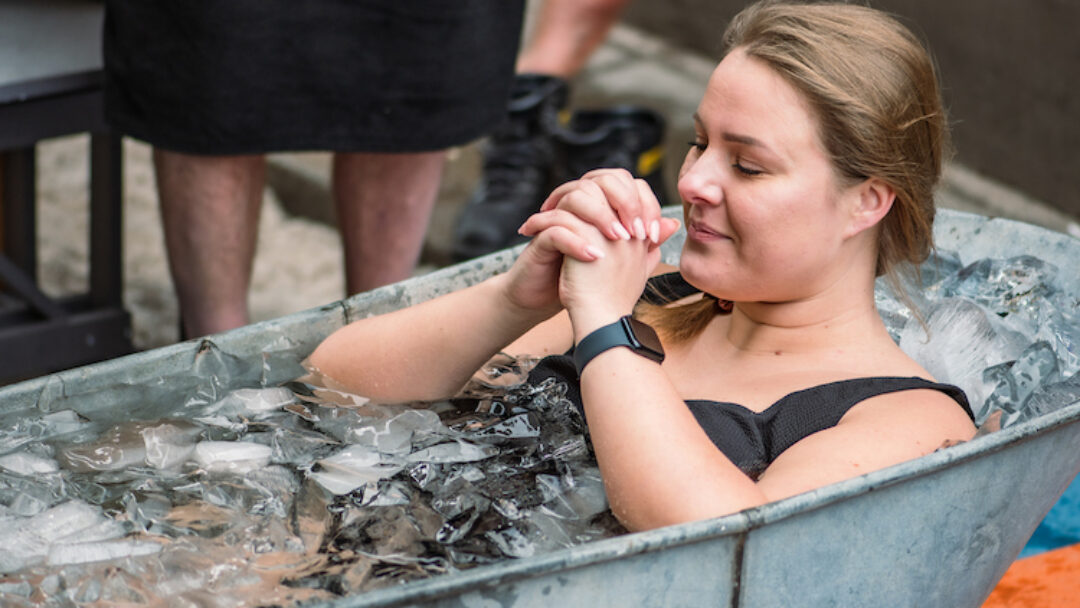Cold plunges are under hot scrutiny. The popular trend that has been growing in recent years touts that the act of submerging your entire body in a freezing ice cold bath for a specific number of minutes was found to reduce inflammation, but researchers are now questioning the impact and are calling for more evidence.
A team of medical researchers from the University of Warwick in the U.K. performed a comprehensive analysis of nine separate studies on the Wim Hof Method (WHM), which is the approach to health and well-being incorporates cold therapy, breathing techniques, and meditation.
Despite the observed ability of the method to decrease inflammation, the team of researchers ultimately determined that the “quality of the studies is of a low standard” and thus, advised that “all findings should be approached with care.”
It was also mentioned that the researches had limited number of participants, therefore they cannot be generalized to the overall population.
Understanding the Wim Hof Method?
The Wim Hof Method is derived from the principles and techniques used by Wim Hof, a Dutch athlete. The technique consists of three main components: cold immersion, respiration, and mindset.
According to previous studies, the approach can provide various advantages for both mental and physical well-being. It has also been believed to decrease inflammation, which is a major contributor to various illnesses and autoimmune disorders.
Aside from its anti-inflammatory benefits, Hof also attributed the use of cold therapy to enhancing his well-being, particularly during a challenging period in his life. He touts that immersing yourself in cold water allows for inner peace and initiates the healing process.
Limitations of studies highlighted by findings
There has been limited research findings and the effectiveness of ice baths are being questioned by medical experts as the popular trend grows. In all of the studies there seems to a significant focus on the potential for bias, and that the research into the Wim Hof Method is still in its initial stages.
Despite some believed positive impacts, such as a decrease in inflammation, the overall advantages are still uncertain. According to the studies that were analyzed by the researchers revealed multiple constraints.
The trials’ high risk of bias was attributed to the absence of a previously published protocol, a limited sample size, and the challenge of effectively blinding the participants and outcome assessors to the intervention.
The concerns pointed out that it was challenging to assess psychological outcomes due to their reliance on subjective answers from a questionnaire.
True Advantages?
For those who still believe in the method, many are saying they have never felt better after trying this therapy. The cold baths also seem to be beneficial for athletes as they do seem to assist in decreasing inflammation in the joints and cartilage, as well as aiding in the recovery process after a workout. Cold plunges can aid in hastening muscle recovery by diminishing feelings of soreness and exhaustion.
Some research does seem support that immersing yourself in cold water at the start of the day can greatly improve your daily activities. Taking ice baths can also potentially have a soothing impact on the body. This may lead to a decrease in stress and anxiety levels, as well as the stimulation of endorphin production in the brain.
However, many still feel that additional research is necessary. Further evidence should be collected on the Wim Hof Method, with a larger number of participants, before it is deemed suitable for public recommendation.
According to experts, not everyone may benefit from ice baths and other cold therapies, and they are not seen as a universal solution for medical issues.
Although there are promising signs of its advantages, further evidence is required before definitive suggestions can be made.
Per usual medical recommendations, before diving into the freezing water, individuals should always consult with a healthcare professional.








